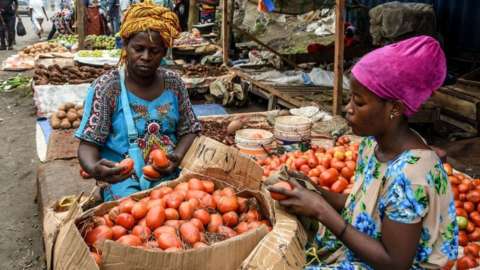
The East African Business Council, COMESA and SADC Business Council have officially launched and formed the African Tripartite Business Council to spearhead the inclusion of private sector policy proposals into the negotiations of African Continental Free Trade Area (AfCFTA) Agreement and the African Tripartite Free Trade Area (TFTA).
This is one of the resolutions from the Consultative Meeting of Regional Business Councils on the Implementation of the African Continental Free Trade Area (AfCFTA) Agreement organized by the East African Business Council (EABC) with support from TradeMark East Africa (TMEA) that was held in Kigali on August 12th, 2022.
“The African Tripartite Business Council will put forward joint private sector policy positions to the AfCFTA Secretariat in Ghana and Tripartite Ministerial Council Meetings in order to accelerate the implementation of the Agreements,” said, Mr. John Bosco Kalisa, EABC CEO.
Mr. Kalisa called upon the Member States from COMESA, the East African Community (EAC) and the Southern Africa Development Community (SADC) to ratify the Tripartite Free Trade Area to achieve the threshold of 14 ratifications required to enable the Agreement to enter into force.
Mr. Dickson Poloji, CEO of COMESA Business Council said, “It is important for the private sector to be knowledgeable of the trade instruments of Rules of Origin, Standards and Dispute Settlement Mechanism under the AfCFTA”
He elaborated that the implementation committees of the AfCFTA should be co-chaired by the private sector.
On his part, Mr. Peter Varndell-CEO, SADC Business Council said “The African Tripartite Business Council will improve coordination and development of positions on AfTCFA policy formulation and negotiations.
Mr. Dennis Karera, EABC Vice Chairman said, “Trading under AfCFTA is the answer for Africa to respond better to external shocks of conflict, Covid-19 and climate change.”
Ms. Nadia Uwamahoro, Managing Director, Data Systems urged for the finalization of the AfCFTA protocol on digital trade to promote youths and the emergence of African-owned e-commerce platforms.
Mr. Antoine Muzaneza, EABC Vice Chair urged for capacity building for the private sector on the benefits of AfCFTA and strategies to boost agriculture and industrial value addition. He expounded on the importance of access to affordable credit and private sector involvement in the development of the national strategies on AfCFTA.
Russia Ukraine war
The African countries depends on imports for food and energy and will be hurt by higher global energy prices due to the Russia Ukraine war. The war has disrupted wheat imports into the region. 16%-17% of food imports for East African countries is wheat and appx. 50% of wheat imports are from Russia and Ukraine.
Dr. Rodgers Mukwaya, UNECA Sub-regional Office for Eastern Africa, said “The COVID pandemic and the Ukraine crisis have disrupted global supply chains. As a result, firms and nations are moving away from global to domestic and regional supply chains. We have to leverage the AfCFTA to create regional value chains”
Dr. Mukwaya, elaborated that African Central Banks have to control inflation without adversely affecting GDP growth.
Mr. Angelo Lado Gore, General Manager of South Sudan Chamber of Commerce, Industry & Agriculture said “South Sudan has the potential to be an agriculture hub and change the country’s narrative of oil dependence and conflict.”
Mr. Stuart Mwesigwa, EABC Board Member said “We need to disrupt the status quo on delay in implementation of AfCFTA and TFTA by moving faster as the private sector and trade.”
Mr. Victor Ogola, Deputy Chief Executive Officer, KEPSA said counterfeits products and illicit trade set back the growth of local industries in Africa. East Africa losses USD.500 million each year due to illicit trade.
Other resolutions outlined to move the AfCFTA agenda forward include: Sustaining Political goodwill, Capacity building for youth in technology, African Local content policy Government procurement, Improving trade facilitation, Investments in cross border infrastructure, Elimination of Non-Tariff Barriers, Resource coordination, Finalization of national AfCFTA Strategies, Improving industrial productive capacities, Liberalization of air transport services in Africa, Capacity building for youth, women and SMEs, Enhancement and mapping of skills, Industrialization and value addition, Participation in AfCFTA Business Forum in Dakar and Regional response mechanism to global shocks ex. regional plant for fertilizers.
Source: EABC
